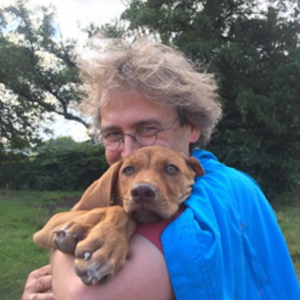
PROF. MARTIN BRÜNE
LWL University Hospital, Research Department of Cognitive Neuropsychiatry
and Psychiatric Preventive Medicine, Ruhr-University Bochum, Germany
Topic: Design Flaws and Mismatch: Why Medicine Needs Evolutionary Theory
Martin Brüne was born in Dortmund, Germany, in 1962. He graduated in medicine at the Westphalian Wilhelms University in Münster in 1988. He completed his neurology training in 1993, and his psychiatry training in 1995. His subsequent training included a Visiting Research Scientist fellowship at the Centre for the Mind, a joint venture of the Australian National University and University of Sydney. He is currently Professor of Psychiatry and Head of the Division of Social Neuropsychiatry and Evolutionary Medicine at the LWL University-Hospital, Ruhr-University Bochum, Germany.
Dr. Brüne has authored more than 250 articles and book chapters. He has also authored the Textbook of Evolutionary Psychiatry and Psychosomatic Medicine: The Origins of Psychopathology (2nd edn. Oxford University Press, 2016). He served as the Editor (together with Prof. Wulf Schiefenhövel) of The Oxford Handbook of Evolutionary Medicine (Oxford University Press, 2019).
His current clinically oriented research projects include the analysis of social cognition in psychosis and in personality disorders, the association of social cognition with social functioning and nonverbal behaviour, the behavioural performance of psychiatric populations in evolutionary game-theoretical scenarios, the effect of oxytocin on social perception and cognition in psychiatric disorders, nonverbal interaction in therapeutic settings, genetics and epigenetics involved in social interaction, and psychopathology in nonhuman animals.
Dr. Brüne’s research approach is grounded in evolutionary theory, that is, how and why cognition, emotion and behaviour in psychiatric conditions relate to adaptive function of psychological traits.
Dr Brüne is a member of several psychiatric and neuroscientific societies (Deutsche Gesellschaft für Psychiatrie, Psychotherapie und Nervenheilkunde (DGPPN), International Society for Human Ethology (ISHE), Gesellschaft für Anthropologie (GfA), and the International Graduate School of Neuroscience (IGSN), Ruhr-University Bochum.
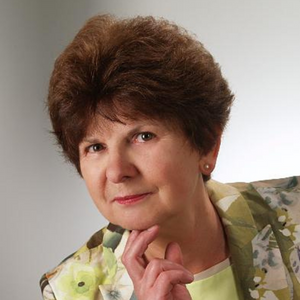
PROF. MARIA KACZMAREK
Department of Human Biological Development, Institute of Anthropology
Faculty of Biology, Adam Mickiewicz University, Poznań, Poland
Topic: Menarche, Menstrual Cycle and Menstruation Viewed Through the Lens of Evolutionary Ecology
Maria Kaczmarek is Professor of Biological Sciences at the Institute of Human Biology and Evolution, Adam Mickiewicz University (AMU), Poznań, Poland. At the AMU she initially studied for an MSc in Biological Anthropology, then completed her Ph.D. and habilitation (D.Sc.) in Human Biology. Her research spans across several different areas involving auxology (also auxological epidemiology) and human reproductive ecology. The primary focus of her current research is on the physiology and ecology of human reproduction and evidence of adaptation in that domain. She initiated, managed and conducted as principal investigator some fascinating research on human growth and ageing, health, behaviour and psychological well-being. There were: (i) a longitudinal study of children aged 5-18, Poznań Growth Study, focusing in particular on mathematical modeling of growth curves, variation in growth curve patterns and the relationship between growth and maturation; (ii) a nationwide cross-sectional survey of female menopause, WOMID and male andropause with special interest in reproductive ecology, and (iii) a multidisciplinary (anthropological, medical and sociological) study on human adolescence, ADOPOLNOR PL0255, financed by a grant from the EEA countries. She is member of numerous scientific societies including Polish Anthropological Society (president for 8 years, 2007-2015), European Anthropological Association (vice-president), and the Commission on Anthropology of Women in IUAES (president). In 2011-2020 she was an editor-in-chief of Anthropological Review, an official publication of PAS since 1926. In 2018 she became a member of the Agder Academy of Sciences and Letters, Norway. In 2019 she received an outstanding Dr. Aleš Hrdlička Memorable Medal Awards for her achievements in the field of anthropology.

PROF. SLAWOMIR KOZIEL
Department of Anthropology, Hirszfeld Institute of Immunology
and Experimental Therapy, Polish Academy of Sciences, Wroclaw, Poland
Topic: Looking from Above - Is Being Tall Advantageous?
Slawomir Koziel is a professor and head of Department of Anthropology Hirszfeld Institute of Immunology and Experimental Therapy, Polish Academy of Sciences. His research concerns biological and health consequences of social phenomenon, risk factors for obesity and epidemiology of obesity, effects of prenatal and early childhood stress on growth and development.
His whole scientific career was associated with Polish Academy of Sciences, where he has been employed since 1994. As a scholar, he visited several times Free University in Brussels, Belgium, Oxford University in UK, and Vidyasagar University in Midnapore, India. He is an international Fellow of the Unit for Biocultural Variation and Obesity in Oxford University and a member of several scientific organisations.
His early work concerned the analysis of the human growth curves, using structural mathematical models matched with longitudinal measurement data of children from Wroclaw Longitudinal Study. This knowledge was used in his doctoral thesis defended in 1997. After this period, he took part in different areas of research: studies on biological aspects of horizontal and vertical social mobility, revealing a selective upward social mobility of taller individuals, studies on the influence of parental radius on the offspring growth, studies on biological consequences of economic and political transition which occurred in Poland in late 80’s and early 90’s of the last century. He also has been working on risk factors of obesity, especially socio-economic factors, among Polish population. Recently, he has been focused on the effect of maternal prenatal stress, induced by natural disaster, on postnatal growth and development of children, as well as the effect of arsenic and heavy metals exposure on children’s growth and development.
He is an author or co-author of more than 170 scientific papers. He was a leader of several national and international scientific projects supported by British Council and European Union, and National Science Centre in Poland.
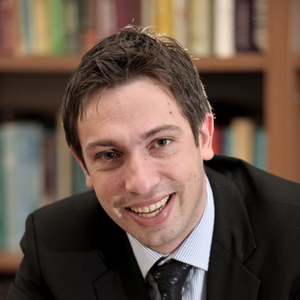
PROF. SAŠA MISSONI
Institute for Anthropological Research, Zagreb, Croatia
Topic: Insight from Croatian Island Cohort
Saša Missoni is a scientist engaged in interdisciplinary anthropological research and an acting director of the Institute for Anthropological Research in Zagreb, under whose mandate numerous collaborations with significant scientists and institutions in Croatia and the whole world and a number of successful domestic and international projects have been realized. He is engaged in research of Metabolic Syndrome and Obesity in islands populations and prevention of it especially in the period of growth and development of the children. Some of the projects he worked on and still works are: CSF Croatian Island's Birth Cohort Study, FP7 project Genetic and environmental factors of insulin resistance syndrome and its long term complication in immigrant Mediterranean populations (MEDIGENE), NIH project Integrated GWAS and EWAS of Cardio metabolic Traits in an Island Population, European Fund for Regional Development project (IRI) Individualized Approach in the Prediction of Type 2 Diabetes Onset and Development. One of the most important projects which can be highlighted is an infrastructural project of the construction and equipping of the Center for Applied Bio anthropology, funded by the European Regional Development Fund. Missoni is a member of the Board of Directors of the Croatian Society for Human Genetics and Croatian society for personalized medicine. From 2019. he is Representative of Ministry of Science and Education on the ICPerMed Executive Committee of International Consortium for Personalized Medicine (ICPerMed). In 2021, he was elected as one of National Representative to the European Commission in Working Group 1+MG WG12 The Genome of Europe (GoE).
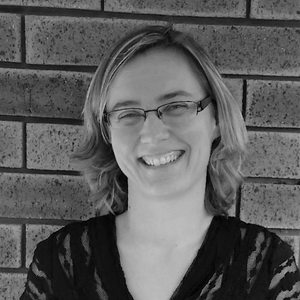
DR. ZUZANA OBERTOVA
Centre for Forensic Anthropology
University of Western Australia
Topic: Same or Different? Forensic Facial Image Identification
Zuzana Obertová is a biological/forensic anthropologist with doctorates in biological anthropology and palaeoanthropology from the Comenius University in Bratislava (Slovakia) and the Eberhard-Karls University in Tübingen (Germany), and in Community Health from the University of Auckland (New Zealand). She is currently a lecturer in forensic anthropology at the Centre for Forensic Anthropology at the University of Western Australia. Before coming to Australia, she was employed as a researcher and forensic expert in the Visual Identification of Persons (ViP) at the Forensic Science Institute in Zürich (Switzerland). She worked on projects on age estimation and identification of living persons (the Institute of Forensic Medicine, the University Clinic, Düsseldorf, Germany), and on trauma dating (LABANOF, the University of Milan, Italy). Zuzana is Assistant Editor at the journal Forensic Science International, and co-editor of the book ‘Statistics and Probability in Forensic Anthropology’. After 10 years as a Board member in the Forensic Anthropology Society of Europe (FASE), she has now become the Vice-President of the Society. Her current research interests encompass morphological assessment of skeletal remains, including non-metric dental traits, trauma, and stable isotope analysis, as well as facial image comparison, and forensic data interpretation.
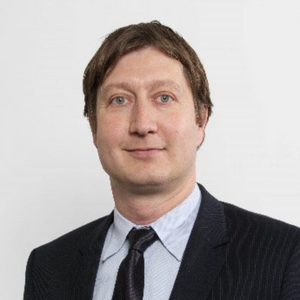
PROF. FRANK RÜHLI
Institute of Evolutionary Medicine, Medical Faculty
University of Zurich, Switzerland
Topic: Evolutionary Medicine – Learning from the Past for the Present and the Future
Frank Rühli, MD, PhD is Dean of the Medical Faculty and Founding Chair (Full Professor) and Director of the Institute of Evolutionary Medicine, University of Zurich, Switzerland. He currently holds an Honorary Adjunct Professorship at the Adelaide Medical School, The University of Adelaide, Australia. He was an Honorary Visiting Professor at the Lee Kong Chian School of Medicine, Nanyang Technological University Singapore and a visiting professor at the University of Geneva, Switzerland. His main research fields are evolutionary medicine (esp. diagnostic imaging of ancient mummies), clinical anatomy, academic governance and health care policy. Frank Rühli has acquired ca. 18 million USD of third-party funding and has a total of ca. 250 scientific publications. He serves in multiple professional bodies, editorial boards and political organizations e.g., he is a member of the Parliament of the City Zurich. Prof Rühli holds also an Executive MBA degree and serves in the rank of a colonel (responsible for Medical Scenarios at Swiss Armed Forces Operational Studies Unit).
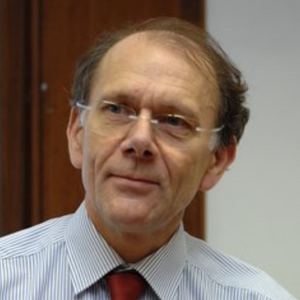
PROF. NICHOLAS MASCIE - TAYLOR
Director of Research in Global Health
University of Cambridge, United Kingdom
Topic: Global Health Fluctuations in Relation to Human Evolution
Professor Nick Mascie-Taylor is Professor of Human Population Biology and Health and Director or Research in Global Health at the University of Cambridge, UK. He has been running, monitoring and evaluating health-related surveys both from a research perspective and to formulate government policy in South Asia and Africa. His initial health-related work focussed on controlling schistosomiasis in east Africa and interventions to control geohelminths in Bangladesh. A ten year project in Bangladesh moved over 1 million people out of extreme poverty and also demonstrated significant improvements in health and wellbeing and nutritional status of adults and children and increased empowerment of women. Most recently he has been involved in the setting up and running of a cohort study (N = 75,000) examining risk factors of Non-Communicable Diseases (e.g. diabetes, hypertension, stroke and cancers) in urban and rural sites in Bangladesh. He also has considerable experience in analysing data and has been running basic and advanced data handling training programmes for DFID, The British Council, DANIDA and The World Bank in many countries (including Bangladesh, India, Kenya, Lithuania, Hungary, Poland, Sudan, Uganda and Zimbabwe) for the last 30 years.
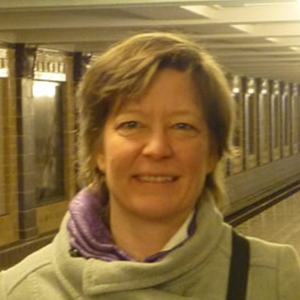
DR. MARIAN VANHAEREN
Centre National de la Recherche Scientifique
University of Bordeaux, France
Topic: Homo Curans. Perspectives on Prehistoric Healing Practices
Marian Vanhaeren studied archaeology at the University of Leuven in Belgium and the University of Bordeaux in France where she defended her PhD (2002) on the topic of Upper Palaeolithic personal ornaments. After post-doctoral positions in Paris (CNRS) and London (University College) she became a researcher at the Centre National de la Recherche Scientifique in France. She participated in the study and publication of ancient personal ornaments from Africa, Europe, Asia and South America. Her research focuses on the characterisation of prehistoric societies and the evolutionary significance of cultural adaptations with a particular interest for social organisation, exchange systems and ethno-cultural units. She uses multiple methods, from modern, fossil, experimental and ethnographic reference collections, to taphonomic, technological, morphometric and use-wear analyses, microscopy, macrophotography, GIS, descriptive and multivariate statistical analyses, for the study of prehistoric and ethnographic personal ornaments. Since 2013 she has been increasingly involved with archaeological, anthropological and ethno-archaeological research in New Guinea and in particular with the archaeological excavation in the Emok Tum site (Star Mountains, Papua Province, Indonesia), the study of symbolic material culture of Papuan and Austronesian cultures and an investigation into the impact of cultural contact in New Guinea especially on changes in material culture, ethno-linguistic geography, nutrition and age at menarche. She published 1 book and about 100 articles.
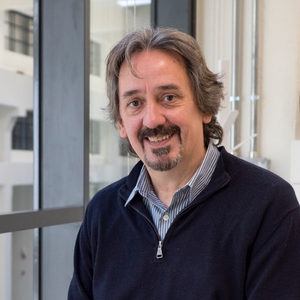
PROF. ALBERT R. ZINK
Institute for Mummy Studies, Eurac Research
Bolzano, Italy
Topic: Multidisciplinary Analysis of Intestinal Content in Ancient Mummies: New Insights into Diet, Disease, and the Evolution of our Gut Microbiome
Albert Zink received his PhD (1998) at the University of Munich, where he also finished his habilitation (Assistant Professor) in 2005. At present he is director of the Institute for Mummies and the Iceman in Bolzano, Italy. He is responsible for the scientific investigation of the well-known Tyrolean Iceman and he directed the major recent research projects on the 5300-year-old mummy. Moreover, the Institute is planning and performing studies on mummy collection form different parts of the world, including Egypt, South Korea, South America and Europe. He was one of the major DNA consultants for the genetic and radiological study of the young pharaoh Tutankhamun, in which his parents could have been identified based on genetic fingerprints. He has specialized in the molecular detection of infectious diseases in ancient human skeletons and mummies by using ancient DNA technologies. His major scientific interest is the evolution of infectious diseases and the impact of diseases on historic populations and their development.
He is one of the three editors of the German scientific journal “Journal of Biological and Clinical Anthropology - Anthropologischer Anzeiger”. He published more than 100 scientific articles and has written several books on paleopathology and mummies. He participated in numerous TV documentaries and gave interviews for almost all major newspapers and magazines worldwide.

